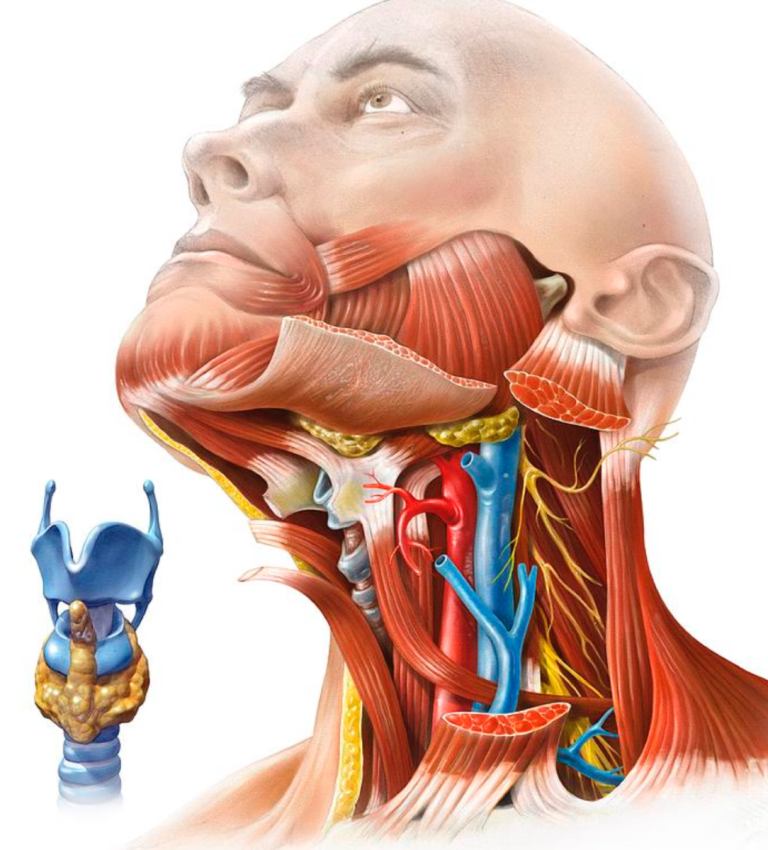Impressive though it is, the human body has some pretty embarrassing design flaws, from retinas that face backwards to nasal passages that drain upwards. (Someone should write a book!) One of the most commonly cited examples is the jumbled conduit we call the neck.
I mean seriously: who came up with the bright idea of eating and drinking through the same narrow tube that we must also breathe through?
Birds have a much better system, with one-way airflow achieved by bifurcating airways and additional air sacs up- and down-stream from the lungs (which also helps reduce the overall density of their bodies). This allows continuous and much more efficient oxygen delivery, necessary improvements for the metabolic demands of flight. This is far superior to the tidal breathing of mammals, which mixes fresh and stale air with every breath.
Probably the worst aspect of the mammalian throat is our penchant for choking. Birds and most reptiles don’t have this problem because their nares (nostrils) convey air through a tube that goes directly to the lungs. This is why a snake can continue to breathe while swallowing a huge meal for an hour or more. Cetaceans – whales and dolphins – solve this problem similarly, with their blowhole sending air directly to the lungs. Keeping the respiratory and digestive systems separate just makes good sense, further evidence that humans are not intelligently designed.
However, humans have it even worse than most mammals when it comes to choking. This is because our larynx (the voice box) is substantially higher in our throats than it is in other primates, including the chimpanzees, our closest living relatives. It’s even higher in humans than it was in our extinct cousins, Homo erectus, Neanderthals, etc. The rise of the larynx means that our throats are even shallower, reducing the space necessary for the careful muscular coordination of swallowing, during which, a flap of flesh-covered cartilage called the epiglottis must quickly cover the windpipe as food or drink is sent instead to the esophagus.
We all know how error-prone swallowing is. How often do we take a big swig only to endure the first splash slipping through the gate and triggering a spasm of coughing?
But why do humans have such shallow throats? Because this is what allows the richness of human speech. The interplay between our tongues and soft palates (the very back of our mouths) is what allows all of the various vowel sounds that so enrich human language. Evolution seems to have favored speech over swallowing over the past few million years. While the gains are easy to appreciate, the costs are borne by the more than 150,000 people that die from choking each year, most of them children. In most cases, this is directly attributable to faulty design.
Now, medical researchers in Dorset (UK) have found even further evidence of our poor design. In a study published this month, researchers observed that patients with certain throat ailments also have problems regulating their blood pressure. The researchers offered an hypothesis for this puzzling observation: both blood pressure regulation and control of the throat and voice box are managed by the vagus nerve.
The vagus, also known as cranial nerve X (ten), is a very busy nerve. The vagus innervates many of the muscles involved in swallowing and coordinates most everything except the first step – the conscious actions that initiate the process. It also innervates the larynx and the surrounding muscles, controlling much of our voice. Oh, and it’s also the major nerve that “sets the tone” for all of our visceral organs, from the pancreas and liver to the stomach and intestines to the kidneys and the bladder. The vagus establishes our heart rate, the diameter of our airways, movement through our intestines, and the list goes on and on.
Compare this with the other cranial nerves, all of which have fewer and simpler tasks. Cranial nerve I is charged with the sense of smell; cranial nerve II with vision (aka the optic nerve); and nerves III, IV, and VI share responsibility for eye movements. Nerve VIII handles hearing and balance, while Nerve XII controls the tongue. Somehow, the vagus nerve got stuck with a very outsized portfolio, controlling dozens of organs and tissues all over the body.
The many disparate functions of the vagus nerve leave it vulnerable to fatigue and this is what physicians thought might be responsible for the impaired blood pressure regulation in patients with Laryngopharyngeal Dysfunction (an umbrella term for muscular problems with the throat or voicebox). To test this, doctors tested the baroreceptor reflex in these patients compared to a control group.
The baroreceptor reflex is mediated by the vagus nerve and occurs any time our blood pressure suddenly drops. This happens to us every day when we quickly stand up after laying down for a while. When we stand, the blood pressure in our neck and head suddenly falls, and, to compensate, our heart starts beating much more quickly and forcefully, which raises the blood pressure back up until our body adjusts to the standing position through constriction of blood vessels around the body. This boost in heart rate is managed by the vagus nerve.
You can test your own baroreceptor reflex. Lay down for a while and monitor your heart beat by placing your hand on your chest. Then, stand up suddenly. You should feel your heart beat faster and stronger for a little while. (Be careful and have something to hold onto, as some people can actually pass out from the temporary drop in blood pressure.)
The results supported the researchers’ hypothesis. The patients with throat and voice ailments had an impaired baroreceptor reflex compared to the control group. Because the same nerve running through our crowded necks has so much to keep track of, it can become overwhelmed. When patients are plagued with dysfunctions of their throat, the vagus nerve has much more work to do. As the researchers put it:
The regulatory demands of maintaining a safe airway with concurrent laryngopharyngeal sensorimotor dysfunction, superadded to baseline demands for dual speech and aerodigestive control, could overwhelm and force the system to deprioritize less immediate functions like esophageal relaxation and the baroreflex.
The observation of an impaired baroreceptor reflex may explain why patients with throat problems often end up with blood pressure problems. But I wish we could explain why the vagus nerve is so overloaded with physiological duties in the first place. Some design!

“slot demo”, jika belum bersiaplah cinta program slot gacor adalah? slots selalu, memberi jatuh win sama Ya ini. slot-slot dikatakan mesin adalah yang andalannya buat membawa. come back, cuan. ini bisa any way cemana caranya nemuin slot gaco benar Tenang Bro, bahas sih aja di tempat ini raja lot yang tepat? Tenang Bro, kita beri {santai|tenang] saja di tempat ini









